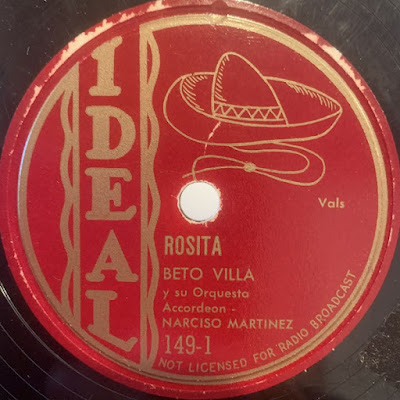Sumter Bruton (Oct. 31, 1944 – Sept. 30, 2022) was considered by many to be one of the top interpreters of the T-Bone Walker guitar style as well as an authority on blues and rhythm and blues, he was also best known as co founder of the Juke Jumpers, a legendary Texas R&B, rockabilly, jazz and swing band.
Thomas Sumter Bruton III was born in Fort Worth, Texas, to a musical family. His parents owned Record Town, a store that opened in 1957 on University Drive across from TCU, where he played baseball and earned a degree. Sumter’s father, Sumter Bruton Jr., was a jazz drummer, musicologist and raconteur of the highest order, the latter two traits he passed to his oldest son.
 |
| 5 Careless Lovers |
Sumter’s career began when he started playing guitar in 1962. The first bands he played in were college blues and rock & roll combos. In 1968 Sumter joined the Robert Ealey Blues Band. He was the only white musician in the group that became Robert Ealey and the 5 Careless Lovers in 1972. They played often at the New Bluebird Nightclub on Horne Street, where Sumter honed his guitar skills and word of his prowess spread. In 1974 Sumter formed his own band called Boogie Uproar, a blues and R&B band that featured a horn section. A year later he formed a similar band called Rhumboogie.
In 1977 Sumter, along with singer/songwriter/guitarist Jim Colegrove, started the Juke Jumpers, a legendary Texas R&B, rockabilly, jazz and swing band. The band recorded five albums and toured the country and Europe, earning rave reviews. Whether it was Colegrove’s swampy grooves, Johnny Reno’s blistering sax solos (often taken while “walking the bar” at whatever venue they were playing), or Sumter taking his tasty guitar solos onto the dancefloor like his Texas guitar idol, T-Bone Walker, the band had star power, charisma and chops to spare.
Here’s “T-Bone Shuffle”
from above LP.
When Stevie Ray Vaughn – who Sumter knew – made Texas blues hot and hip in the ’80s, the Juke Jumpers rode the wave and kept the boogie going for several years doing over 200 gigs a year for a time. The band broke up a few times, but came back together several times over the years with the core nucleus of Sumter and Colegrove.
Among the various artists with whom Suimter performed was singer, writer, and piano player, Mike Price. Together they formed The Swingmasters in 1993. Sumter played on many other albums, including Slim Richey’s Jazz Grass, a seminal album from 1977 that is considered one of the first – and most successful – records to mix jazz with bluegrass.
When Sumter’s father died in 1988, he helped manage Record Town, along with his mother Kathleen. Sometimes, Sumter’s brother, the equally musical Stephen, would be in the store and the two would trade stories and sometimes guitar licks with each other. You never knew what you’d find when you stopped in on Sumter and Record Town. You’d likely walk out with a record or two. Stephen Bruton, who died in 2009, was a singer and guitar player who played with Kris Kristofferson and Bob Dylan, among many others. He also wrote “Trip Around the Sun.”
During the spring of 2013 Bruton entered hospital with a staph infection after which his health deteriorated significantly.. Eventually he had to sell Record Town and its iconic neon sign several years ago to fans and friends of the store. He died on Sept. 30, 2022 at the age of 77, and on Oct. 8, a memorial celebration was held at Ridglea Theater Lounge by musicians who had crossed paths and learned from their generous friend.
(Edited from Fort Worth
Report & The Cool Groove)




























.jpg)
.jpg)









.jpg)








.jpg)